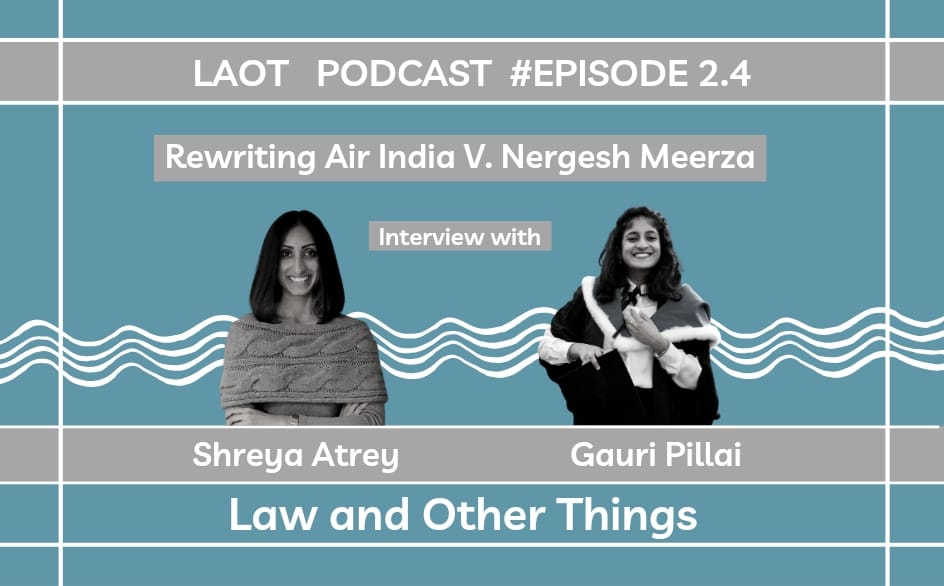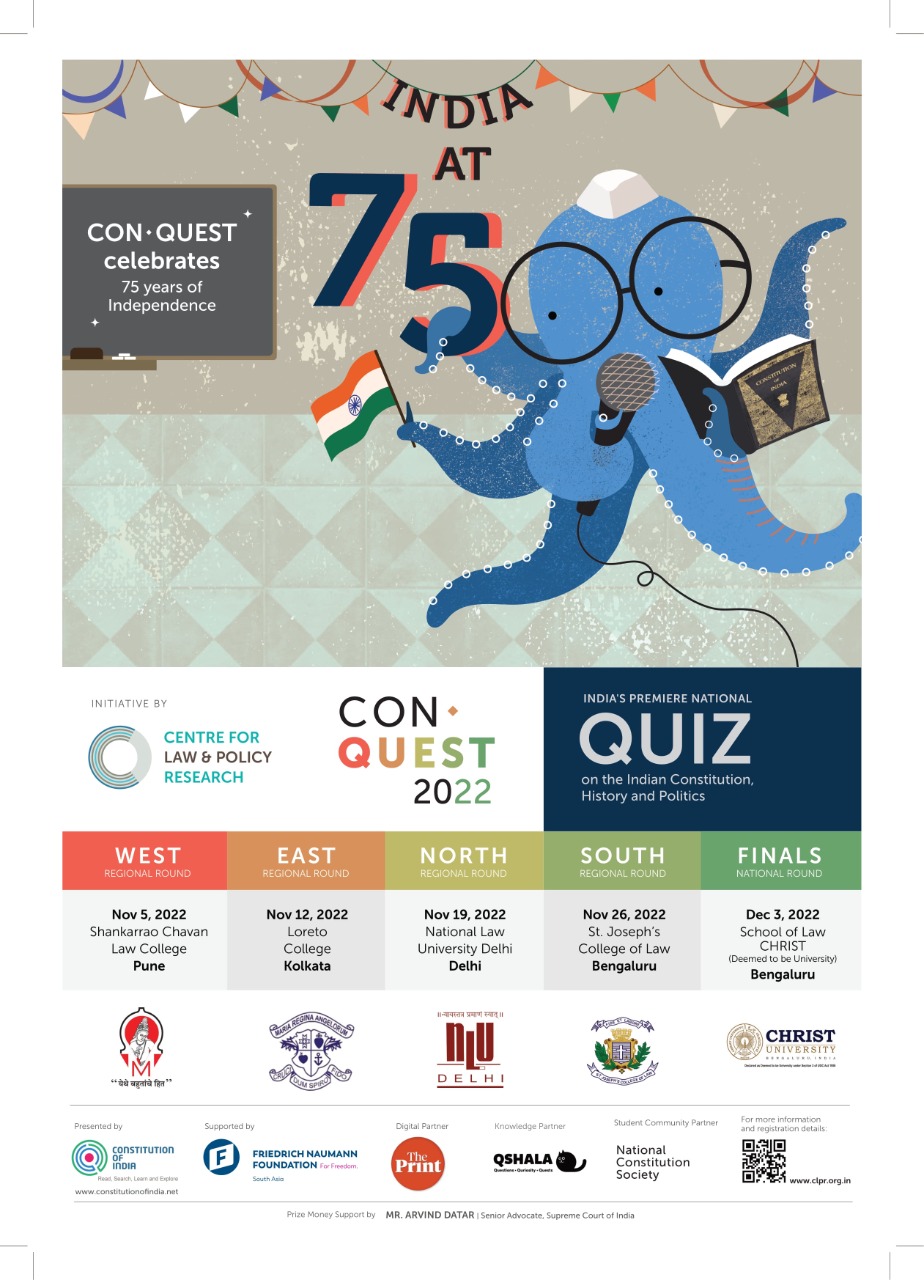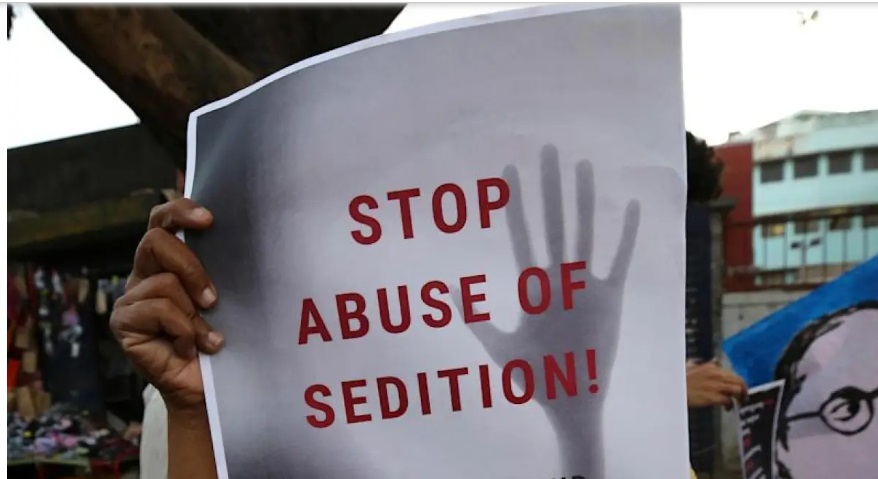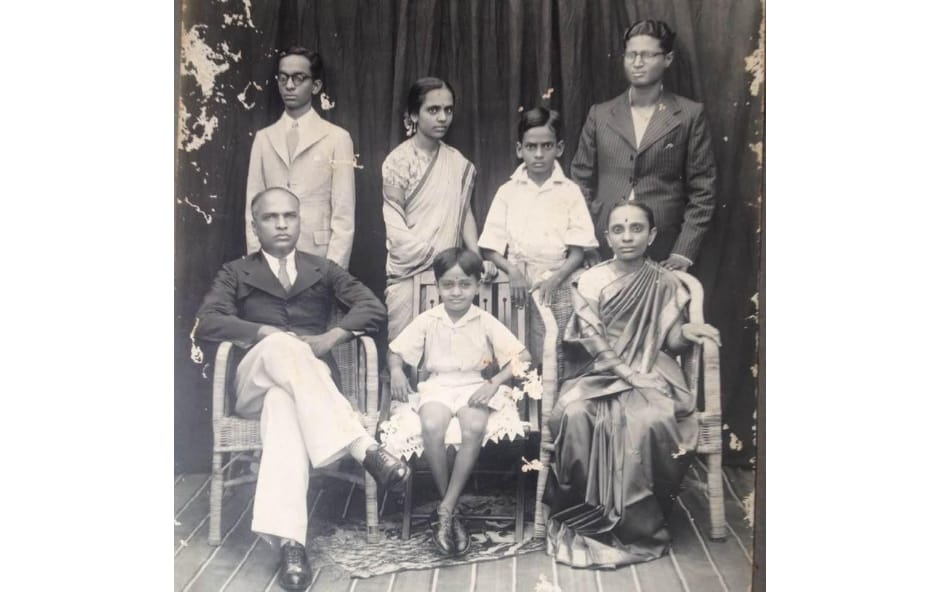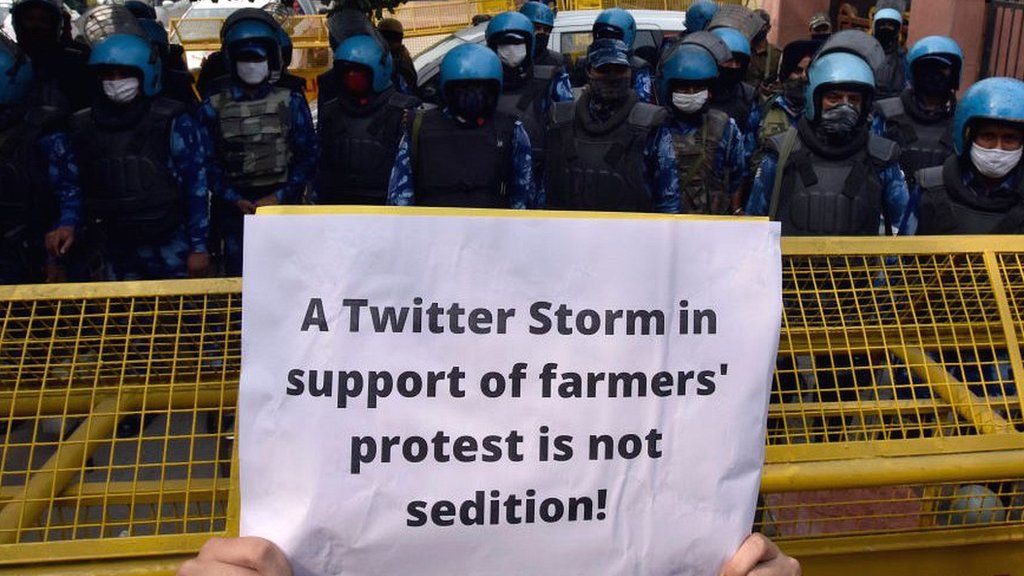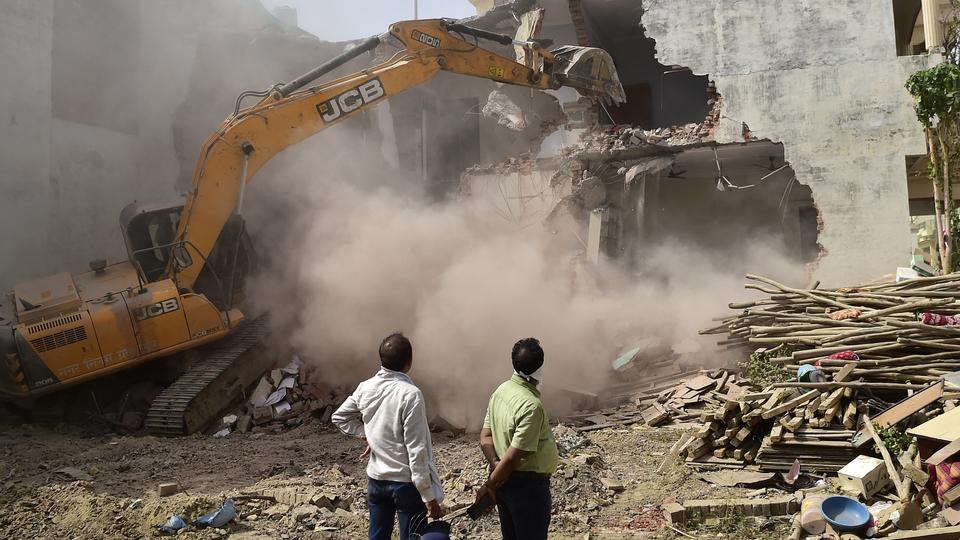In this episode, our legal editor Eeshan Sonak is in conversation with Shreya Atrey and Gauri Pillai discussing their rewriting of Nergesh Meerza, which dealt with the constitutionality of Air India...
The Anil Divan Foundation has launched the Friend of the Court podcast series that forensically reconstructs three major cases that senior advocate and constitutional expert, Anil Divan argued: the...
The Centre for Law and Policy Research (CLPR) is excited to announce the 6th edition of ConQuest: India’s Premiere National Quiz on the Indian Constitution, History and Politics. Since its first...
The Everyday In Sedition in Liberal Democracies, Dr. Singh “juxtaposes the understanding of sedition emerging from the higher judiciary with the practice of the law on the ground.” Her chosen field...
In an interview with the BBC, the Pakistani singer Ali Sethi spoke of zamana (loosely translated as, the times one lives in) being the ultimate muse in Urdu poetry, or the ‘great enemy’. For, to be...
In part two of the blog, the authors argue how IPC doesn't have a presumption of constitutionality, being a colonial law, and hence deserves a examination on its prima facie text, instead of a simple...
Standing from left to right are Justice O. Chinnappa Reddy, Dr. O. S. G. Sundaramma (sister), Mr. Swaminatha Reddy (brother), Mr. Julian Reddy (first cousin). Seated from left to right are Mr. O...
In this two-parter, the authors make a case for the unconstitutionality of Section 124A of the IPC, considering the recent change in Indian jurisprudence, namely that pre-constitutional laws like the...
(This is the second part of the post, where the authors make an argument regarding using the Unconstitutional State of Affairs doctrine to evaluate the legality and possible challenges to the...
The present blog details the first few weeks of CJI UU Lalit's tenure at the Apex Court.
In this two-parter, the authors discuss the impact of recent trends of bulldozing houses, speculated by observers to be politically motivated, on the rule of law. They suggest importing the...
The Criminal Justice and Police Accountability Project (CPA Project) was founded in 2019 as a litigation, research, and capacity-building intervention committed to ending the disproportionate...
In an order dated 19 September 2022, the Supreme Court for the first time in 42 years has referred issues relating to capital sentencing to a Constitution bench. Driven by the objective to revisit...

